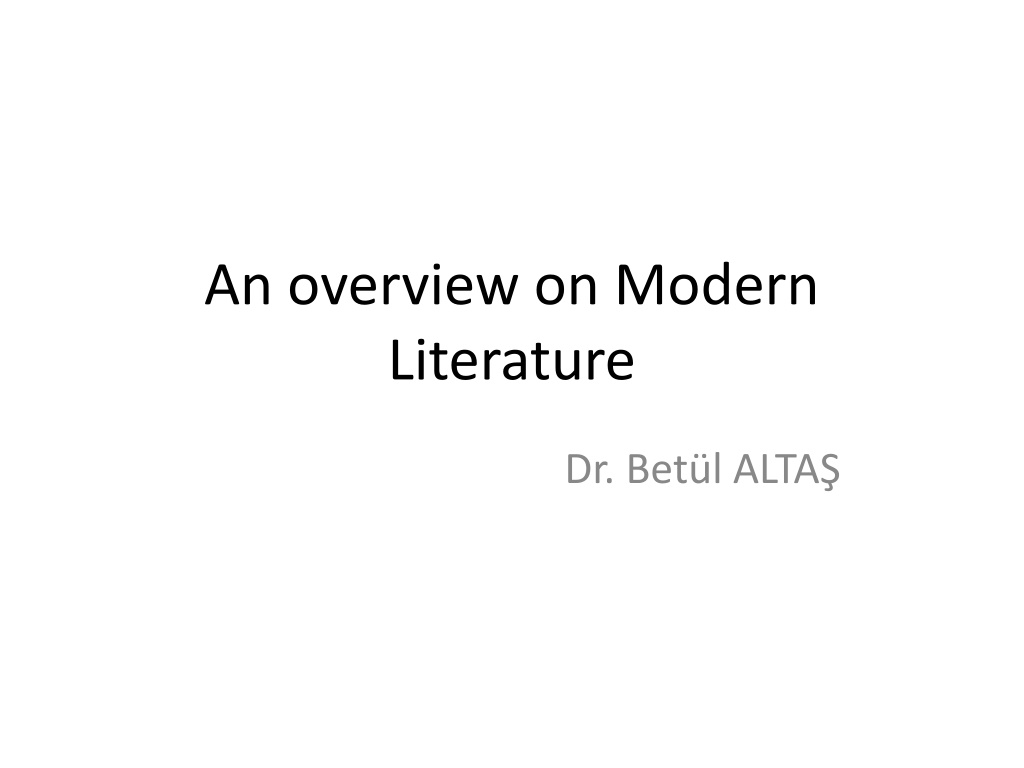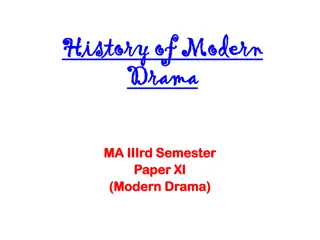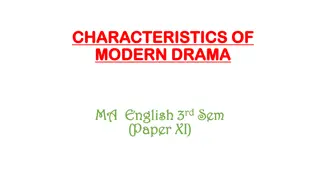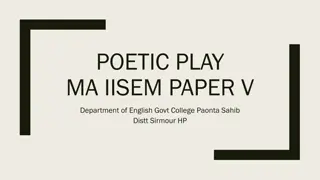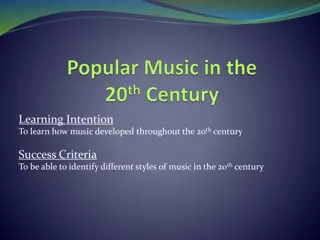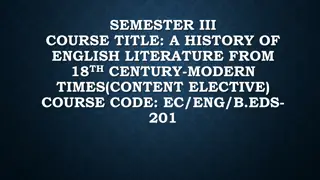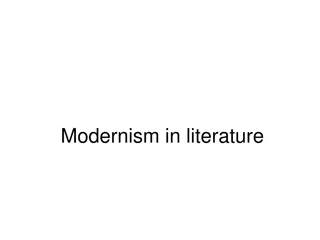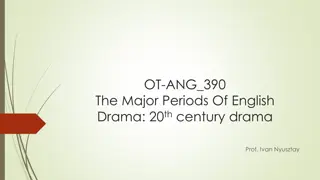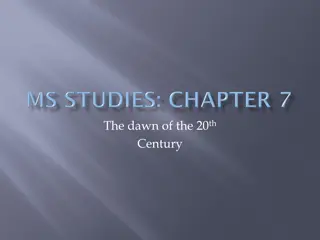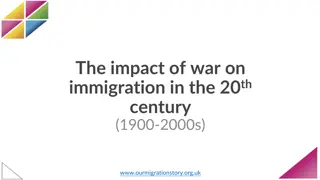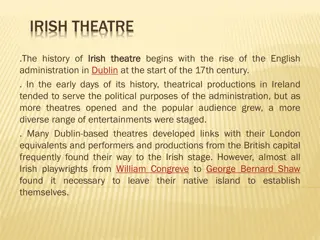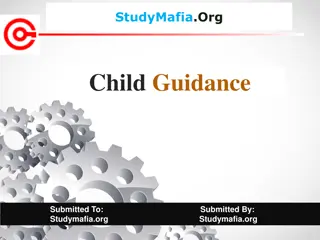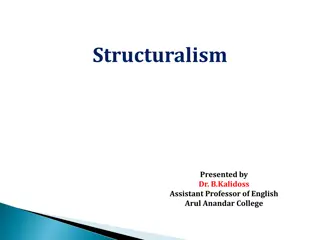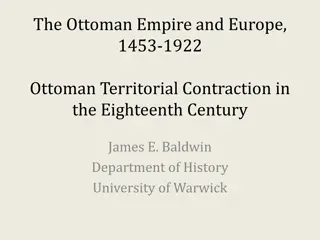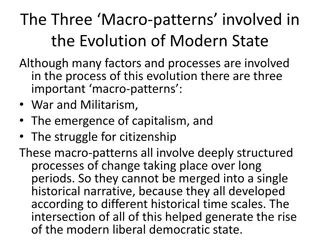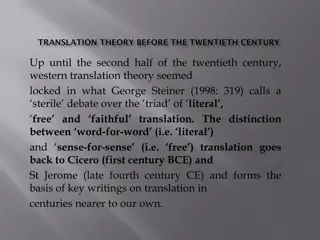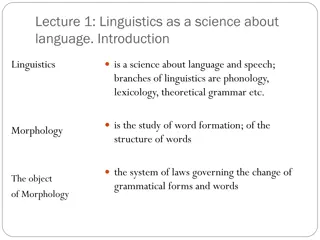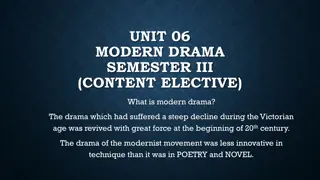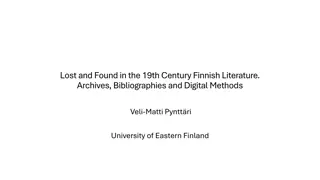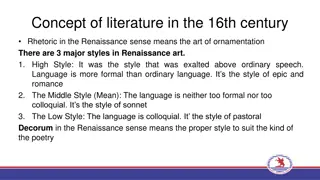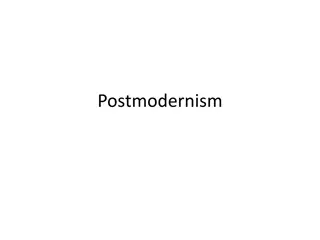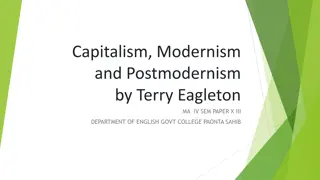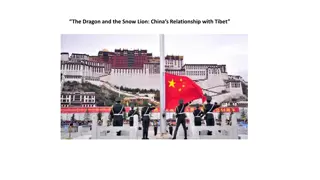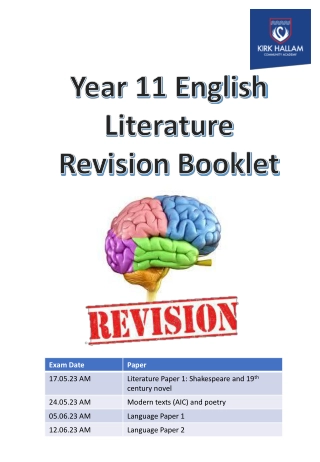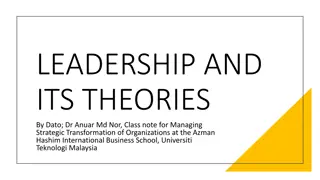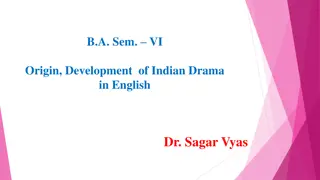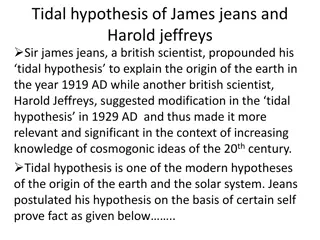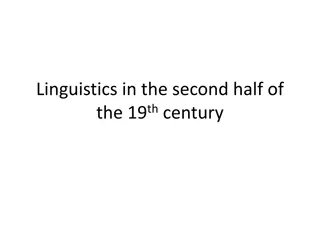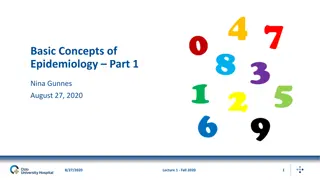Evolution of Modern Literature in the 20th Century
The Modern Age in literature emerged in response to the Victorian era, marked by a shift in attitudes towards life and society. Influenced by historical, economic, and ideological factors such as World Wars, capitalism, and the disintegration of empires, Modern Literature explored new themes and styles. Various literary trends of modernism, including symbolism and stream of consciousness, reflected the era's complexities and uncertainties.
Download Presentation

Please find below an Image/Link to download the presentation.
The content on the website is provided AS IS for your information and personal use only. It may not be sold, licensed, or shared on other websites without obtaining consent from the author. Download presentation by click this link. If you encounter any issues during the download, it is possible that the publisher has removed the file from their server.
E N D
Presentation Transcript
An overview on Modern Literature Dr. Bet l ALTA
Modern Period In the second half of the 19th century and the early decades of the 20th century, both natural and social sciences in Europe had enormously advanced.
Their rapid development led to great gains in material wealth. When capitalism came into its monopoly stage, contradictions between socialized production and the private ownership caused economic depressions and mass unemployment.
The Modern Age in English Literature started from the beginning of the twentieth century, and it followed the Victorian Age.
The most important characteristic of Modern Literature is that it is opposed to the general attitude to life and its problems adopted by the Victorian writers and the public, which may be termed Victorian .
1. Historically Modernism results from skepticism and disillusion of capitalism. The First World War and the Second World War had influenced the English literature.
2. Economically The Second World War marked the last stage of the disintegration of the British Empire. Britain suffered heavy losses in the war: thousands of people were killed, the economy was ruined, almost all its former colonies were lost, people were in economic, cultural, and belief crisis.
3. Ideologically The rise of the irrational philosophy and new science greatly had an influence on modern writers to make new explorations on human natures and human relationships.
Literary history of the period Literary trends After the First World War, all kinds of literary trends of modernism appeared: symbolism, expressionism, surrealism, cubism, futurism, Dadaism, imagism and stream of consciousness.
1) Modern English poetry: It is a revolution against the conventional ideas and forms of the Victorian poetry. 2) Modern English novels: The first three decades of 20th century were golden years of the modernist novel.
3. The development of 20th century English drama: The most celebrated dramatists in the last decade of the 19th century were Oscar Wilde and George Bernard Shaw, who pioneered the modern drama, though they did not make so many innovations in techniques and forms as modernist poets or novelists.
The basic characteristics of Modernism in literature: Modernism takes the irrational philosophy and the theory of psycho-analysis as its theoretical base. One characteristic of English Modernism is "the dehumanization of art".
The major themes of the modernist literature : The distorted, alienated and ill relationships between man and nature, man and society, man and man, and man and himself.
Major figures of this period George Bernard Shaw (1856- 1950) Mrs. Warrant Profession John Galaworthy (1867- 1933) The Man of Property William Butter Yeats (1865- 1939) The Land of Heart s Desire Thomas Stearns Eliot (1888- 1965) Murder in the Cathedral David Herbert Lawrence (1885- 1930) Sons and Lovers James Joyce (1882- 1941) Ulysses
